What Happens To Your Body When You Eat Peas
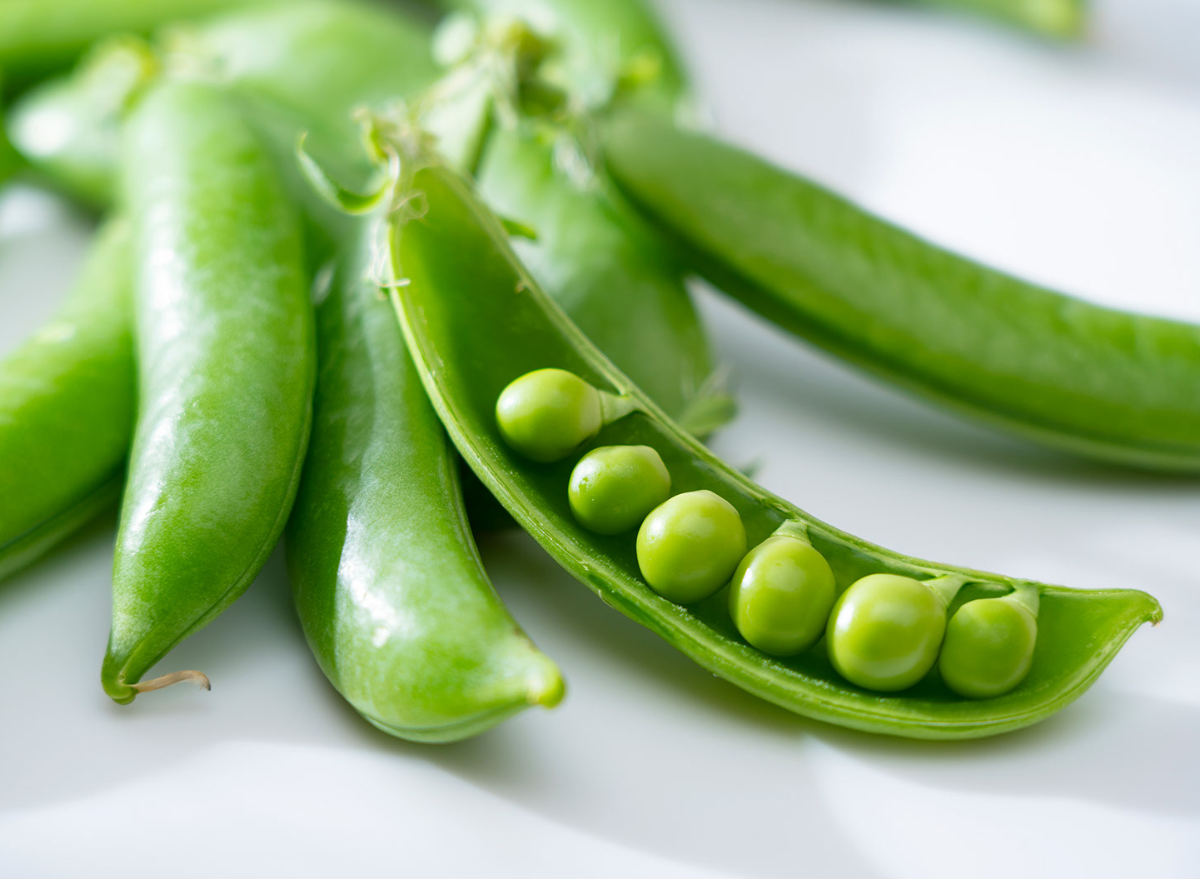
They say good things come in small packages—and that’s certainly true when it comes to peas. These spherical seeds come from the pods of the Pisum sativum plant and are a healthy addition to any meal—from salads to soups, even atop crostini!
Even though you’ll often find them in the frozen veggie section at the supermarket, peas are not technically veggies. “Many people categorize them as a vegetable because of their high starch content,” says registered dietitian Abby Cannon, JD, RD, CDN. However, they’re actually legumes (like lentils and chickpeas).
And at just 62 calories for a half cup, peas pack a potent nutritional punch! “They provide plant-based protein, fiber, and a wonderfully sweet taste to meals,” says Cannon.
Read on for some of the ways peas can impact your health and well-being, and for even more healthy eating tips, be sure to check out our list of The 7 Healthiest Foods to Eat Right Now.
Your energy levels might improve.
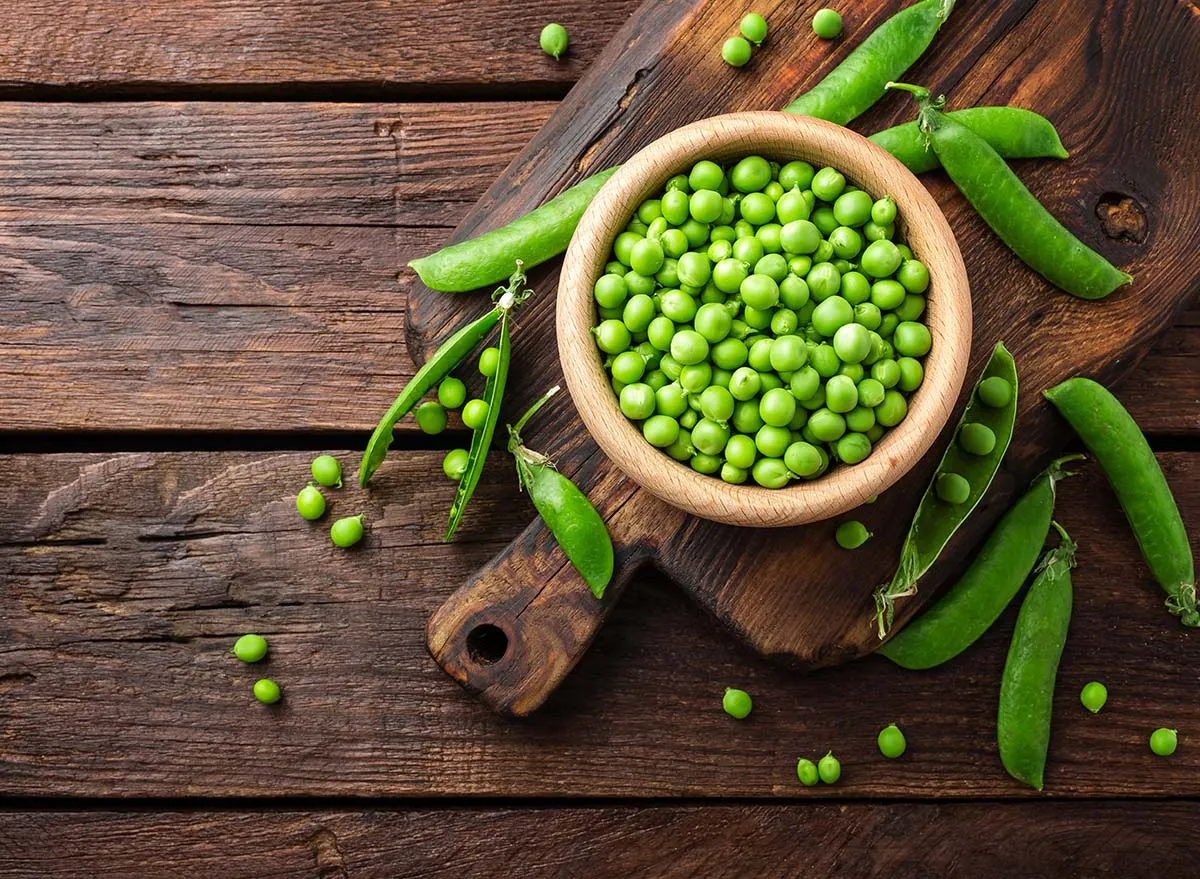
Peas are a great source of plant protein, which is a vital nutrient and source of fuel.
“Protein is part of every cell in your body,” says Cannon. “You need it to build muscles, to maintain and repair our cells, to create hormones and neurotransmitters, to digest food, and to carry oxygen throughout your body, among other things.”
Your digestion will get a dose of support.
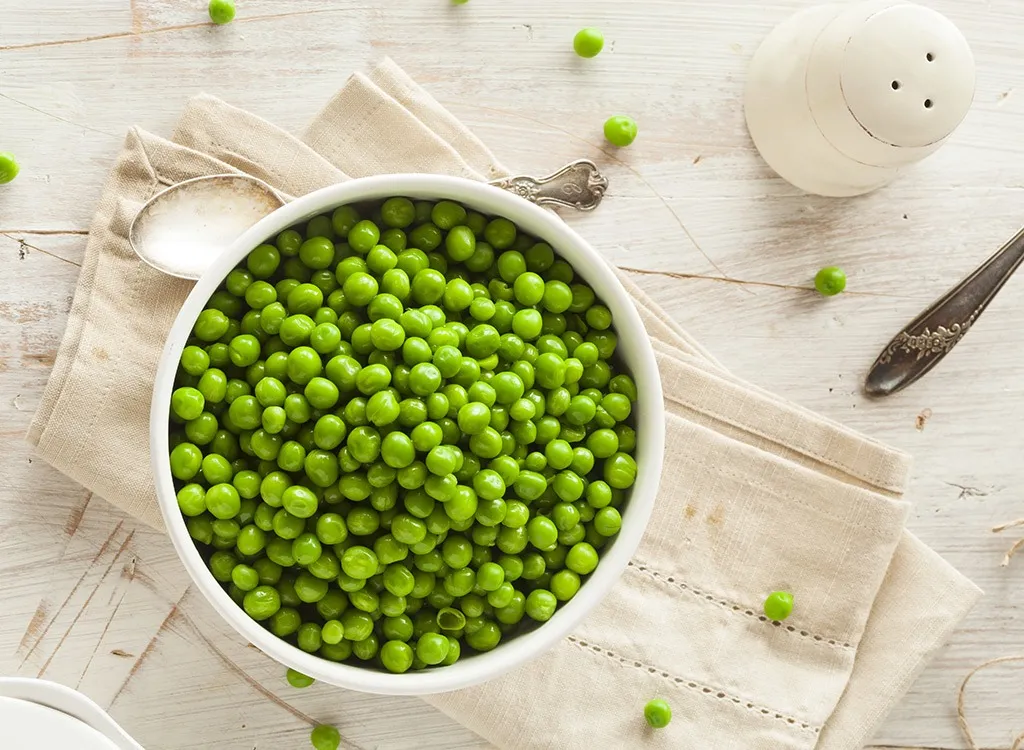
Peas can also help regulate your digestion due to their high fiber content.
“One cup of peas contains 7 grams of fiber, which is 23% of the recommended 30 grams to have daily,” says Cannon.
Fiber is essential for healthy digestion, but we often don’t get enough of it.
“It helps us feel full, improves digestion and elimination, and soluble fiber even helps lower LDL cholesterol,” explains Cannon.
You may feel more satisfied with less food.
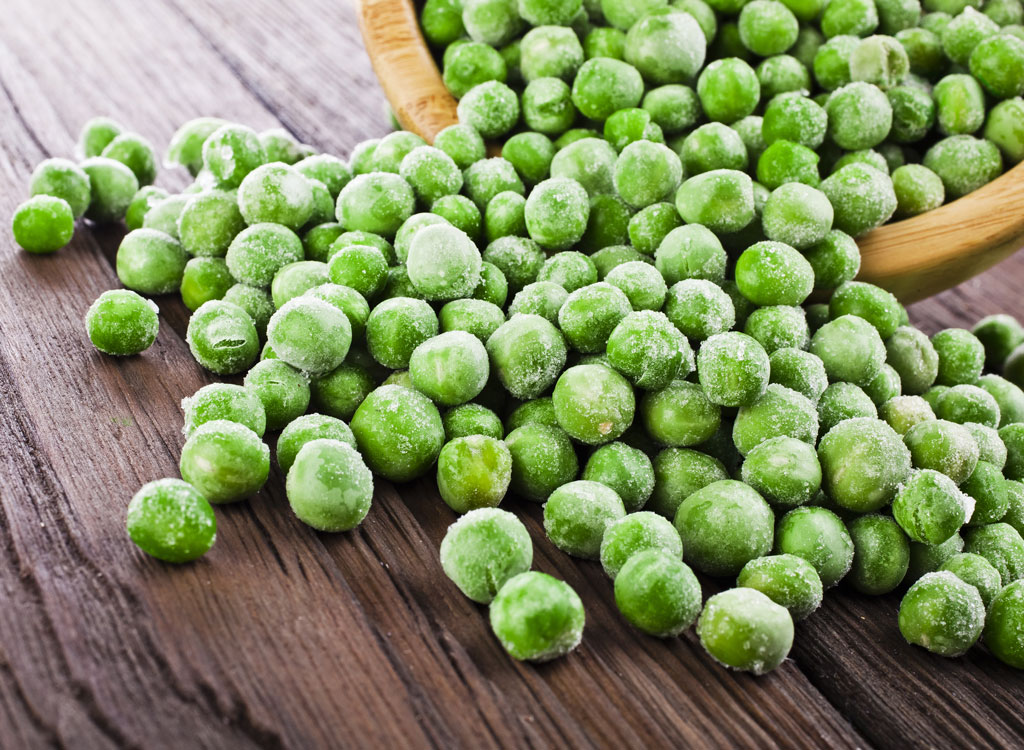
When you fill up on protein, certain hormones that regulate appetite (like ghrelin) get reduced. This is why one key part of losing weight is getting enough protein. Plus, studies show that when you up your intake of fiber and protein, you’re likely to eat fewer calories throughout the day.
You’ll get some essential nutrients.

Peas are like nature’s vitamins—they’re packed with practically every vitamin you need! They “contain vitamin A, vitamin C, iron, vitamin B-6, and magnesium,” explains Cannon. Because vitamins play a vital role in all functions of the body—everything from supporting your immune system to repairing cellular damage—it’s all the more reason to load up on natural vitamin-rich sources.
You’ll also consume anti-nutrients (don’t worry).
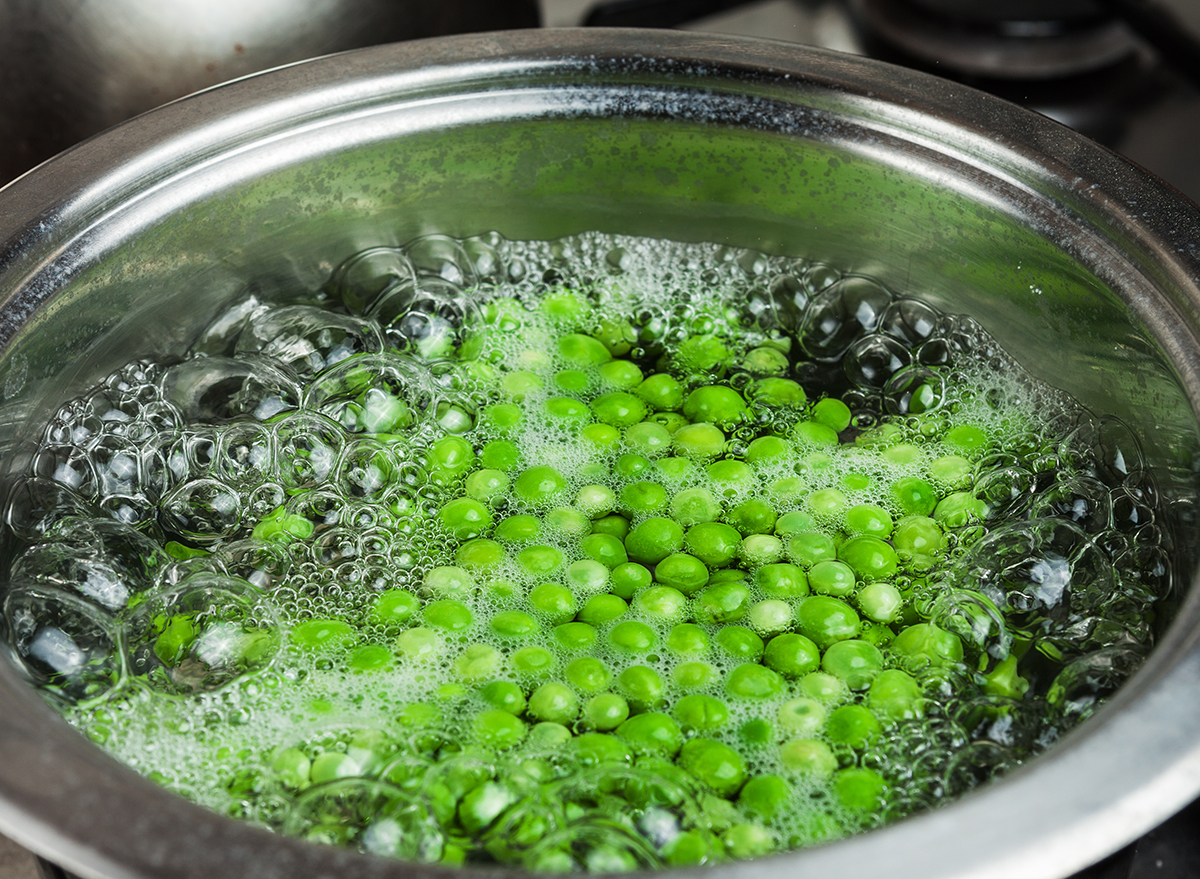
Peas also contain an anti-nutrient called phytic acid, which can inhibit the absorption of other nutrients. However, Cannon explains that “if you soak peas before eating, the phytic acid content decreases. Plus, cooked peas have less phytic acid, and it’s unlikely you’re eating raw peas.” It just goes to show that frozen foods aren’t always inferior to fresh.
Inflammations may decrease.
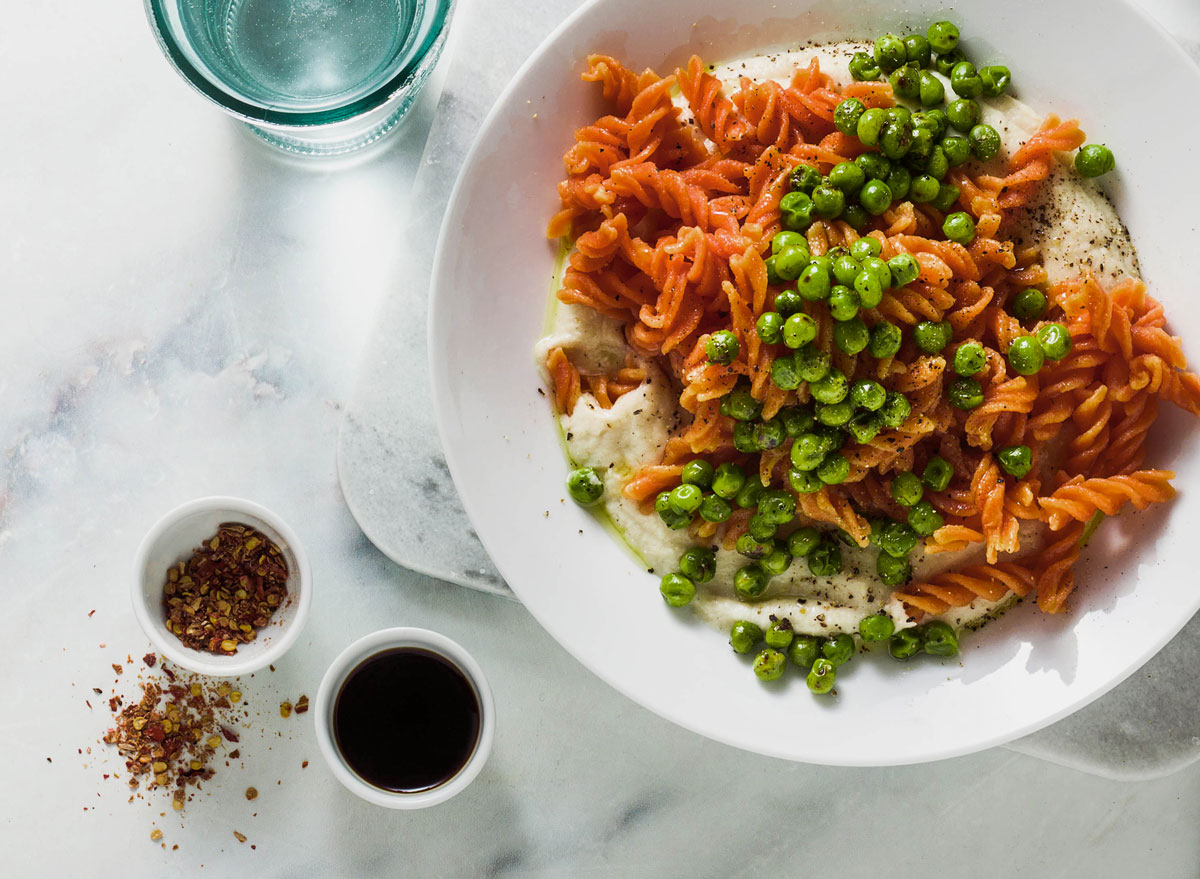
Peas are also chock-full of polyphenol antioxidants, which help fight damage done by free radicals. High levels of free radicals in the body can lead to oxidative stress and inflammation, which can cause damage to your DNA and increase your risk of certain diseases, like cancer.
Your blood sugar will improve.
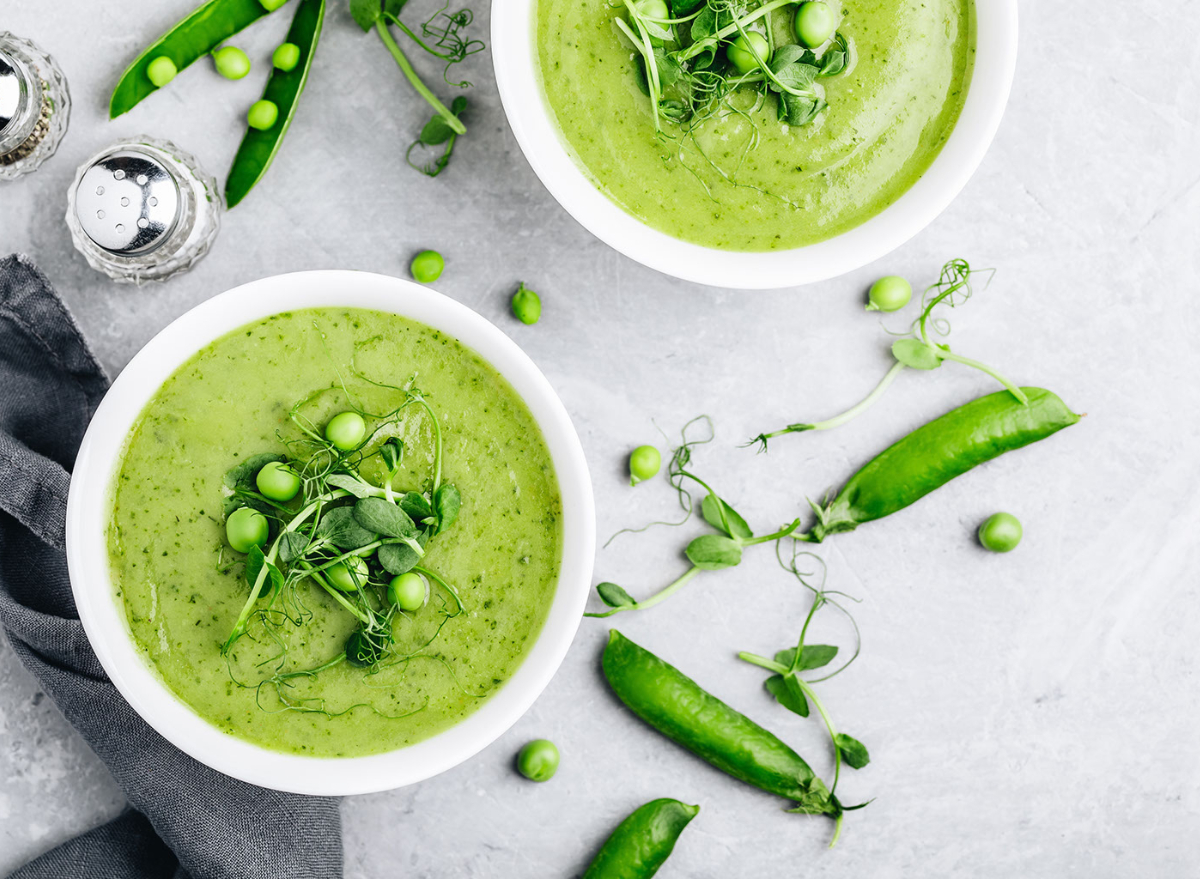
Due to their high-fiber content, peas can help level out your blood sugar and keep it from spiking or crashing because “fiber helps slow down the absorption of sugars,” explains Cannon.
How to add peas to more of your meals.

Make a hearty split pea soup and enjoy all the benefits of peas—it’s a classic for a reason!
Add them to your favorite garden salads for an extra nutritional boost.
Sprinkle atop avocado toast to jazz up your breakfast.
Whip up a pea spread—like chef Yotam Ottolenghi’s Pea Spread with Smoky Marinated Feta—as a great appetizer at your next dinner party.
Looking for even more clever cooking tips? Get them straight to your inbox by signing up for our newsletter! Then, read these next:








